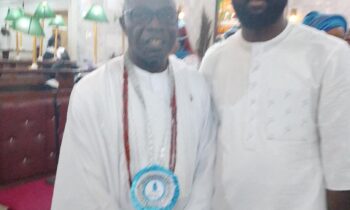Contrary to the kite flown by some electricity distribution companies over the impending increase in electricity tariff in July, the Nigerian Electricity Regulatory Commission (NERC) is yet to come out with a definitive position over the matter.
Sources close to NERC told Business Standards that the commission is still working on what the tariff should be and it has not taken any definitive action on the issue.
So the claim that the baseline for tariff mark up would be N100 per kilowatts hour by some stakeholders in the industry cannot be taken for certainty.
The source however stated that electricity distribution companies have submitted the assumption to the commission but it is now left for the agency to fine tuned what the discos have brought, which is what the commission is doing now.
he tariff review is done every six months with some slight adjustments in electricity tariff based on inflation and exchange rate, the one of this year has generated heightened interest among consumers and stakeholders because of the prevailing economic conditions and some of the ongoing reforms in the country.
It was speculated that between N150 to N300 per kilowatts hour of electricity would be what Nigerians would start paying as from July 1st, 2023. This is even as the Manufacturers Association of Nigeria MAN has enumerated the impacts of the proposed 40 percent tariff increase on Nigerians if it is implemented.
But a source in NERC has described all these as assumptions which may not be true. He stated further, that as sad as it is, this shall not translate into any significant improvement in reliable electricity Supply nor translates into upscale in efficient service delivery due to obsolescence of critical power grid infrastructure, Technical and Commercial Losses and poor culture of market remittances, grid constraints amongst others.
MAN Reaction
Reacting to the issue, the Manufacturers Association of Nigeria (MAN) through Segun Segun Ajayi-Kadir, its director general stated that as a matter of fact, a further rise in electricity tariff could lead to the following:
Costs of production will soar: Higher electricity tariffs will directly increase the cost of production for manufacturers. Already, we have energy constituting between 28-40% of the cost structure of manufacturing industries. You can imagine the impact on manufacturing industries that are energy-intensive such as metal processing, heavy machinery, and chemicals manufacturing.
Profit margins will reduce: A spike in the electricity tariff will erode the profit margin of the manufacturers and reduce their ability to expand operations and create new jobs
iii. High probability of activities paralysis: This is a definite possibility among small and medium-sized enterprises (SMEs) who are unable to accommodate the higher price.
Potential decrease in the revenue collectible by the government: The hike in electricity tariff will reduce the manufacturers’ profitability and by extension the quantum of taxes and fees payable to the three tiers of Government. Manufacturers remain the largest income taxpayer in the country. Therefore, in the event of poor income generation due to high costs of production, the government purse will suffer.
Manufacturers will ultimately pass on the additional cost to the consumers of their products: This will increase the cost of local made products in the market and complicate the rising inflation rate in the country.
Recession of manufacturing activities: An increase in electricity tariff will reduce the purchasing capability. One of the resulting effects is the fall in demand and recession of manufacturing activities over time.
The sector’s competitiveness will definitely worsen: The high cost of the products will make locally produced items less competitive when compared with imported alternatives. This is also true of exports, as Nigerian products may find it more challenging to penetrate foreign markets. Such a move will restrict our export earnings because it will be impossible to compete with our counterparts in the global trading environment.
High probability of outward investment. Some manufacturing industries may consider shifting production to other economies with lower electricity tariffs and guaranteed availability.
Manufacturers Expectations
The expectation of the manufacturers is that the Federal Government and NERC will ensure improvement in electricity generation, transmission and distribution that will lead to adequate and reliable electricity supply in the country, rather than increasing the tariff on the mere 4000MW to meet all revenue needs of stakeholders in the electricity supply industry.
Government should ensure that at least 90% of electricity consumers are metered to ensure consumption reflective electricity bill payment, formulate electricity policies that will aid investment in the energy industry to increase generation capacities that will usher in large-scale production of electricity and ensure effective implementation of the recent Electricity Act (2023) that is aimed at increasing the electricity supply in the country.
Specifically:There is an urgent need for the diversification of energy sources and intensifying infrastructure investment in the power sector;
Eradicate outrageous bills by closing the metering gap through the liberalization of ultimate users’ access to effective mass metering;
iii. Ensure the connection of all consumers to the electricity grid to avoid free riding and unfair charges on the few connected consumers;
Work on efforts to increase the electricity supply base in order to distribute the total cost among a high number of consumers at a much lower unit cost;
States and private investors should rise up to the challenge by taking advantage of the Electricity Act 2023 to eradicate the energy poverty of their people.





